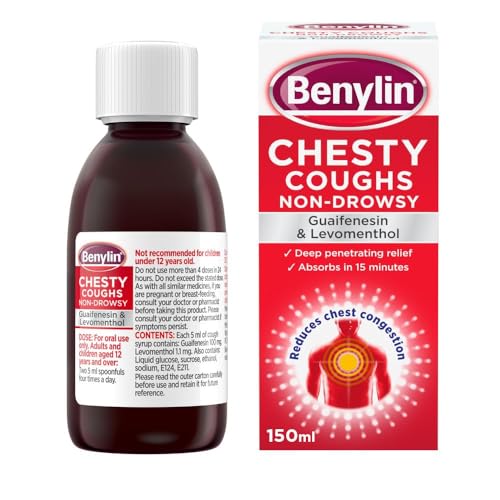Understanding Cough Medicines and Their Types
Coughing is one of the body’s natural reflexes to clear the airways of irritants like dust, smoke or mucous. However, a persistent cough can disrupt sleep, cause exhaustion and annoy others. Cough medicines can provide relief by reducing the urge to cough, numbing the throat or loosening phlegm. There are two types of cough medicines:
- Expectorants: These loosen thick mucus so that it can be coughed up easily. Active ingredients include guaifenesin and potassium citrate. Examples: Robitussin Chest Congestion and Mucinex Fast-Max Congestion & Cough.
- Suppressants: These reduce the urge to cough by blocking the cough reflex. Active ingredients include dextromethorphan and codeine. Examples: Robitussin Cough + Chest Congestion DM and DayQuil Cough 12 Hour Cough Relief.
Interactions Between Cough Medicines and Other Drugs
Cough medicines can affect the body differently depending on the active ingredients and dosage. Some cough medicines should not be taken with other drugs or medical conditions, as they can cause adverse reactions or reduce the effectiveness of the other drugs. Here are some examples of interactions:
- Narcotics: Cough suppressants containing codeine or hydrocodone can interact with opioids or benzodiazepines to cause sedation, respiratory depression or coma. People who take these drugs should avoid cough suppressants or consult a doctor before using them.
- Monoamine Oxidase Inhibitors (MAOIs): Expectorants containing guaifenesin can interact with MAOIs to cause high blood pressure, rapid heartbeat or seizures. People who take MAOIs should avoid expectorants or follow the doctor’s advice on dosage.
- Blood Thinners: Expectorants or suppressants can interact with blood thinners like warfarin or aspirin to increase the risk of bleeding, bruising or hemorrhage. People who take blood thinners should consult a doctor before using cough medicines, or avoid them altogether.
Precautions When Using Cough Medicines
If you are going to use cough medicines, you should follow some precautions to ensure their safety and effectiveness:
- Read the label carefully and follow the dosage instructions. Do not exceed the recommended amount or frequency, as it can lead to side effects or overdose.
- Do not mix different types of cough medicines or drugs without first consulting a doctor or pharmacist. Some combinations can be dangerous or counterproductive.
- If you have any allergies, medical conditions or are pregnant or nursing, seek medical advice before using cough medicines. Some ingredients or forms of cough medicines may not be suitable for certain individuals.
- Store cough medicines in a cool, dry place and out of reach of children or pets. Some cough medicines contain alcohol or other substances that can be harmful if ingested in large amounts.
- If you experience any adverse reactions or do not find relief after using cough medicines for a few days, seek medical advice. Coughing can be a symptom of an underlying condition that requires medical treatment.
Alternative Ways to Soothe a Cough
If you prefer not to use cough medicines or want to complement them with other remedies, here are some alternative ways to soothe a cough:
- Stay hydrated: Drinking plenty of fluids, especially warm water, can help moisturize the throat and loosen the mucus.
- Use humidifiers: Placing a humidifier in the room or taking a steamy shower can help reduce coughing by adding moisture to the air.
- Suck on lozenges: Using over-the-counter throat lozenges or drops can help numb the throat and reduce irritation.
- Try natural remedies: Using honey, ginger, garlic, or other natural remedies can help reduce coughing by boosting the immune system or reducing inflammation.
- Rest: Getting enough sleep and reducing physical or mental stress can help the body recover from a cough more effectively.
Be Careful When Using Cough Medicines
Cough medicines can provide relief from a persistent cough, but they can also interact with other drugs or medical conditions, and cause side effects or overdose if used improperly. If you are going to use cough medicines, make sure to read the label, follow the dosage instructions, and consult a doctor or pharmacist if you have any doubts or concerns. Alternatively, you can try natural remedies or other ways of soothing a cough without using drugs or risking interactions.






